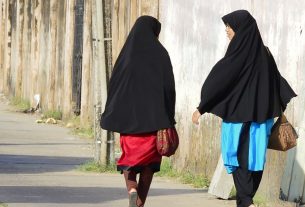On December 9, 2024, human rights defender Edris Menbari was sentenced to two years in prison by the Sanandaj Revolutionary Court in Iran. Menbari, who was a board member of the Nozhin Socio-Cultural Association, a group advocating for the socio-cultural rights of the Kurdish community, was convicted on charges of “forming groups and association with the intention of disturbing national security.” His sentence follows his ongoing efforts to promote Kurdish cultural rights, including organizing Kurdish language classes and cultural events. The conviction, many argue, reflects Iran’s broader crackdown on minority rights and the suppression of peaceful advocacy.
Menbari’s conviction is part of a larger pattern of state repression targeting human rights defenders in Iran. Menbari has been involved in defending the rights of the Kurdish people and advocating for their right to preserve and use their language, which has faced systematic restrictions in Iran. As part of their activism, members of the Nozhin association, including Menbari, have made the symbolic decision to communicate exclusively in Kurdish, defying state-imposed restrictions on the language.
The court’s ruling suspends one year of Menbari’s sentence for a period of three years, contingent upon his cessation of involvement with the Nozhin association and any similar organizations. This condition further intensifies the legal and political pressure on Menbari, who has played a significant role in promoting the legal and cultural rights of ethnic minorities in Iran. Menbari now has 20 days to appeal the sentence, though many observers remain skeptical about the fairness of the judicial system under the current government.
Background and Context: Repression of Kurdish Rights
Menbari’s sentencing follows a troubling series of legal actions against both him and other members of the Nozhin Socio-Cultural Association. In October 2023, he and his sister-in-law, Serveh Pourmohammadi, were initially sentenced to ten years in prison on similar charges related to their peaceful activism. However, their sentences were overturned on appeal, with the cases being sent back to the Sanandaj Revolutionary Court for reconsideration.
In addition to his role in cultural advocacy, Menbari was also targeted for his participation in the “Woman, Life, Freedom” protests, which have swept Iran in response to government repression of women and ethnic minorities. For his involvement in these protests, Menbari was sentenced to one year in prison and forty lashes in October 2023. These actions are part of a wider effort by the Iranian government to suppress dissent, particularly from minority groups and human rights defenders, and have drawn widespread international condemnation.
International Outcry and Calls for Menbari’s Immediate Release
The conviction of Edris Menbari has sparked outrage from human rights organizations around the world. Front Line Defenders, an international human rights organization, has condemned Menbari’s sentencing as arbitrary and politically motivated. They have called for the immediate and unconditional release of Menbari, asserting that the charges against him are baseless and reflect a broader pattern of repression against ethnic minorities and human rights defenders in Iran.
“The conviction of Edris Menbari is a clear violation of his right to freedom of expression, association, and peaceful assembly, which are guaranteed under both international human rights law and Iran’s own Constitution,” said Front Line Defenders in a statement. The organization further emphasized that Menbari’s only “crime” was peacefully advocating for the rights of the Kurdish people, an action that should be protected, not punished.
Other prominent human rights organizations, including Amnesty International and Human Rights Watch, have also expressed alarm over Menbari’s conviction. Both organizations have highlighted the Iranian government’s systematic targeting of activists and defenders of minority rights, particularly those advocating for the cultural and linguistic rights of the Kurdish community. Amnesty International has issued urgent calls for Menbari’s release, stating that his detention is part of an ongoing effort by Iranian authorities to silence peaceful dissent and activism.
Broader Crackdown on Human Rights Defenders
Menbari’s case is far from isolated. Over the past several years, a growing number of human rights defenders, particularly those advocating for minority rights, have been subjected to arbitrary detention, harassment, and imprisonment in Iran. Zahra Mohammadi, a founding member of the Nozhin Socio-Cultural Association, was sentenced to five years in prison in 2021 for similar charges, while Serveh Pourmohammadi, Menbari’s sister-in-law, received a five-year sentence in November 2024 for her involvement in promoting Kurdish cultural rights.
In another case, two former Nozhin members, Soma Pourmohammadi and Seivan Ebrahimi, were acquitted of similar charges, and their earlier sentences were overturned. Despite these rare instances of legal victories, the general trend for human rights defenders in Iran remains grim, with continued crackdowns on freedom of expression, assembly, and association.
International pressure has mounted on the Iranian government to end its repression of ethnic minority rights and to ensure that human rights defenders can work freely without fear of retaliation. However, the Iranian government has shown little willingness to comply with international human rights standards, and activists continue to face increasing levels of harassment and intimidation.
Calls for Accountability and Action
Human rights advocates, both within Iran and internationally, are calling for greater accountability and pressure on the Iranian authorities to respect the rights of their citizens. Front Line Defenders, Amnesty International, Human Rights Watch, and other global organizations are urging the Iranian authorities to:
- Immediately and unconditionally overturn the convictions against Edris Menbari and other members of the Nozhin Socio-Cultural Association.
- End the judicial harassment of all human rights defenders in Iran, including those involved in the peaceful promotion of ethnic and cultural rights.
- Ensure that human rights defenders in Iran can carry out their legitimate and peaceful activities without fear of reprisal, arrest, or prosecution.
The international community continues to call for stronger diplomatic efforts to hold Iran accountable for its ongoing repression of human rights defenders, and organizations like Front Line Defenders are at the forefront of advocating for the immediate release of individuals like Menbari, who are imprisoned for peacefully asserting the rights of marginalized communities.
As Menbari’s case progresses, the pressure on the Iranian government to uphold its citizens’ basic rights and freedoms intensifies. For now, human rights organizations remain steadfast in their commitment to advocating for his freedom and the broader protection of human rights in Iran.



